Remembering
Searching the archives
The absence of overlooked groups in the interpretation of historical material affects the writing of history today. It also affects the sense of a shared identity. While some groups have been given an obvious place in the history of the EU community, others have been excluded. In order to contribute to a more fair and multifaceted history writing and feeling of belonging, a method for searching the structures of the memory institutions is needed. Being aware of how these structures work can provide important input for the students, professionals and researchers, to carry out projects developing new formats, or questioning older ones.Further readings
- NAIK, Kaustubh, Subaltern Cultures as Commodities, The Goan Everday, 10th November 2015. Link, UK
- N’Autre histoire (French) https://pod.link/1511417581
- Hirsch Marianne and Diana Taylor, emisferica “On the Subject of Archives”, Volume 10-2, 2013, https://hemisphericinstitute.org/en/emisferica-91.html - “This double issue looks at archives as calls to action. Rather than stable repositories, archives here are imagined as acts and practices in transit that mobilize different media and are mobilized by them.”
Keywords
Contributions

CRAFTpedia
Keywords: ancestral knowledge, artisanal knowledge, cultural heritage
the craftpedia presents very diverse crafts and practices, from more popular ones to very specific, place-based or endangered ones.
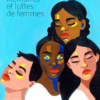
Mémoires et luttes de femmes (Memories and Struggles of Women)
Keywords: creative inquiry, emotion, non-mixity, ordinary experiences, sharing experiences, testimonies and memory
A method to redefine references in terms of struggles, pride, resistance, resilience, and women’s capacities, beyond the great figures and stories usually put forward in history
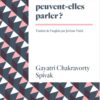
Can the Subaltern Speak?
Keywords: case study, failure, inquiry, narrative, positionality, subaltern
“Can the subaltern speak? What must the elite do to watch out for the continuing construction of the subaltern?” (p. 294).
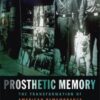
Prosthetic Memory. The transformation of American remembrance in the age of mass culture.
Keywords: collective memory, cultural memory, empathy, mediation of knowledge
Landsberg claims that in modernity, mass media create the possibility for new forms of social memory: By creating an immediate, visceral and affective engagement with past events, media settings such as cinemas or experiential museums provide what she labels ‘prosthetic memory’.

Roundtable: Undoing Discrimination? Diverse in Berlin?
Keywords: diversity, inclusion, individual and collective stories, institutional change, power structures in arts and culture
Are diversity measures in cultural institutions just another set of methods of solidifying what they claim to change? What are the inconspicuous formal routines, the small informal habits, the official and unofficial rules that create the feeling of running into a wall that one claims is not there?
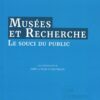
Le souci du public (Taking care of audiences)
Keywords: audiences, care, museum, reflexivity
Taking care of the audiences" deconstructs the meaning of care in the cultural sector and looks at the diversity of practices underpinned by definitions of "audiences" that can diverge sharply (is the audience a target, a state, a regime of discourse, a condition?)
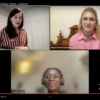
Arkivens dag 2021 – Dolda röster i arkiven (International Archives Day – Hidden voices in the archives)
Keywords: black history, collaboration, cultural heritage, history, museum, women’s history
Whose perspectives are saved today and whose lives are found in our archives? What strategies can we have to fill the blind spots in the archives? How can we document the present to make sure that tomorrows history books can show our diverse society?







